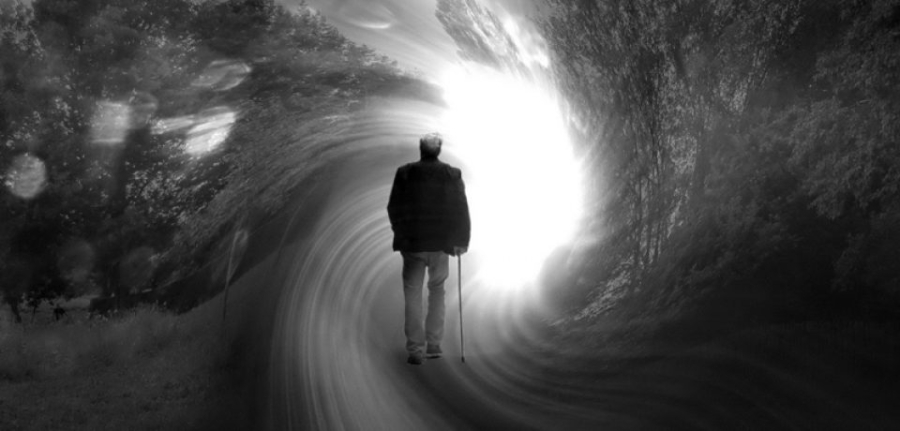When a person dies and settles in the world of Barzakh, due to leaving the limited world of matter, he may have higher abilities in terms of perception and performing certain tasks. He may have better and greater awareness of the realities of the world. However, this does not mean that the dead have absolute power to perceive; the truth of the matter is more related to the position and status that the person has in Barzakh; based on what has been stated in the narrations and sayings of the Infallibles, peace be upon them, the dead are generally aware of certain situations.
Many matters also reach them through intermediaries, meaning that by seeing some spiritual gifts that reach them, they become aware of good things for themselves; for this reason, it has been said that visiting the graves of the dead and remembering them well makes them happy. Doing any good deed, sending blessings, saying the remembrance of God, praying, fasting, performing any obligatory or recommended deed on their behalf and presenting its reward to the dead, causes openness in their affairs and status and elevates their status.
Muhammad ibn Muslim says: I asked Imam Sadiq (a.s.): Is there any benefit to the deceased in visiting their graves? He said: “Yes.” I asked: Do they see and recognize those who visit their graves? He said: “By God, yes! They see and recognize you. They are happy that you remembered them and visited them. They will become close to you and will be interested in you.”(2)
A person named Umar bin Buraid asked Imam Sadiq (a.s.): Is it possible to pray (or do any other good deed) on behalf of a deceased person and donate its reward? He said: “Yes. Sometimes a deceased person is in distress and torment because of his deeds. When a prayer – or any other good deed is performed on his behalf and its reward is donated to him, an opening is achieved in his work. It is said to that deceased person: This opening (and forgiveness) is because of the prayer that so-and-so performed on your behalf.”
The person said: I asked: Is it permissible for me to pray two rak'ahs and share the reward with two or more people? He said: "Yes, just as a gift is sent to the living, it makes them happy. Every request for forgiveness or mercy from the living reaches the dead, which makes them happy and joyful." (3) According to such teachings, it is clear that the dead mentioned in the question are informed about the gifts of the mentioned individuals. They understand who brought the gift. That is why, based on religious beliefs, we send gifts to scholars, martyrs, believers and imams even though we have not seen them.
Believers see each other in the Barzakh. In the presence of Imam Sadiq (AS), the topic of the souls of believers was raised, and the Imam said: "The souls of the believers meet and visit each other in the Barzakh."
A person asked the Imam in surprise: Do they meet? He said: “Yes, and they ask each other and get to know each other, even when you see him you say: So-and-so.”
Another narration speaks about the meeting of all people with their fellow believers. The narrator says: I asked Imam Sadiq (AS): Where are the souls of the believers? The Imam said:
“The souls of the believers are in the chambers of Paradise, eating from its food, drinking from its drinks, and visiting each other.”
The souls of the believers are in the chambers of Paradise. They eat from its food, drink from its drinks, and visit each other.” (5)
In connection with such narrations, a detailed analysis by some of the great contemporary scholars is worth listening to:
The soul of a believer meets, communicates, and has friendships with the souls of believers in the world of Barzakh, whether with those with whom he had friendships and relationships in worldly life (such as relatives) or with other souls of other believers. All these connections, meetings, and friendships are based on divine affinity and attraction. In fact, the emergence of Barzakh is the same friendships and affections that existed in the world based on divine affinity and attraction. Every believer has a special attraction to every other believer based on his faith and, if possible, is in contact with him, and if not, seeks it. (6)
Footnotes:
1. Kulayni, Muhammad ibn Yaqub, Kafi, Dar al-Kutb al-Islamiyyah, Tehran, 1388 AH, vol. 3, pp. 231 and 230.
2. Sheikh Saduq, Man la yahdrah al-Faqih, Jame’ah al-Modaresin, Qom, Bi-ta, vol. 1, p. 180, h. 540.
3. Ibid., p. 183, h. 554.
4. Ahmad ibn Muhammad Barqi, Mahasin al-Barqi, Ahl al-Bayt Institute, Qom, 1413 AH, p. 178.
5. Ibid., p. 178.
6. Muhammad Shoja’i, Ma’ad or Return to God, Publishing Joint Stock Company, 1362 AH, pp. 349 and 350.

